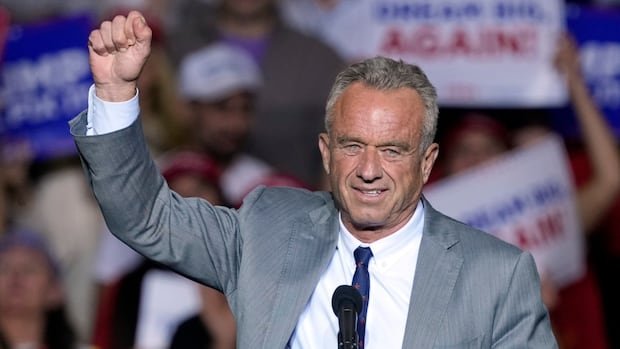U.S. president-elect Donald Trump’s choice of Robert F. Kennedy Jr. as the health and human services secretary nominee has sparked concerns within the scientific and public health communities. Some experts argue that Kennedy’s controversial views on vaccines raise red flags for his potential leadership of a department overseeing drug and food safety, medical research, Medicare, and Medicaid.
Kennedy’s assertions, particularly on vaccine safety and effectiveness, have drawn scrutiny. While he denies being “anti-vaccine,” Kennedy’s association with an anti-vaccine group has led him to question the overall impact of vaccines. Despite his claims, health authorities assert that vaccines have been instrumental in eradicating diseases like smallpox, polio, and measles, saving countless lives.
Moreover, Kennedy’s criticism extends to the COVID-19 vaccine, labeling it as the “deadliest vaccine ever made.” However, reports linking adverse events to vaccines are not verified, as per the Vaccine Adverse Event Reporting System. Kennedy has specifically focused on discredited connections between childhood vaccinations and autism, attributing this link to a mercury-based preservative called thimerosal.
In the realm of chronic disease in children, Kennedy has voiced concerns about a surge in health issues, attributing it to various factors, including vaccines. While he claims a significant rise in chronic health conditions among children, experts emphasize the complexity of defining and tracking such conditions over time. Kennedy’s role in shedding light on childhood health challenges is acknowledged, given the U.S.’s lag in child well-being compared to other industrialized nations.
Additionally, Kennedy has criticized the use of seed oils, labeling them as contributors to the obesity epidemic. Contrary to Kennedy’s stance, research supports the health benefits of seed oils, which are considered a healthier alternative to saturated fats like butter and lard. Omega-6 fatty acids found in seed oils, though often vilified, play a crucial role in reducing bad cholesterol levels and promoting cardiovascular health.
Regarding food dyes, Kennedy has raised alarms about artificial additives in U.S. food products like Froot Loops, pointing to their potential health risks. While some studies suggest a correlation between certain dyes and hyperactivity in children, the evidence linking synthetic dyes to cancer in humans remains inconclusive. Experts emphasize the need for regulatory approval and caution against unwarranted concerns about food additives.
Lastly, Kennedy’s advocacy for raw milk consumption has drawn attention, despite its legal restrictions in Canada and some U.S. states. Raw milk enthusiasts claim health benefits, but health authorities caution against potential bacterial contamination risks associated with unpasteurized milk consumption.
In conclusion, Kennedy’s controversial stances on vaccines, chronic disease, seed oils, food dyes, and raw milk have sparked debates in the public health arena, highlighting the importance of evidence-based policymaking and public health communication.

